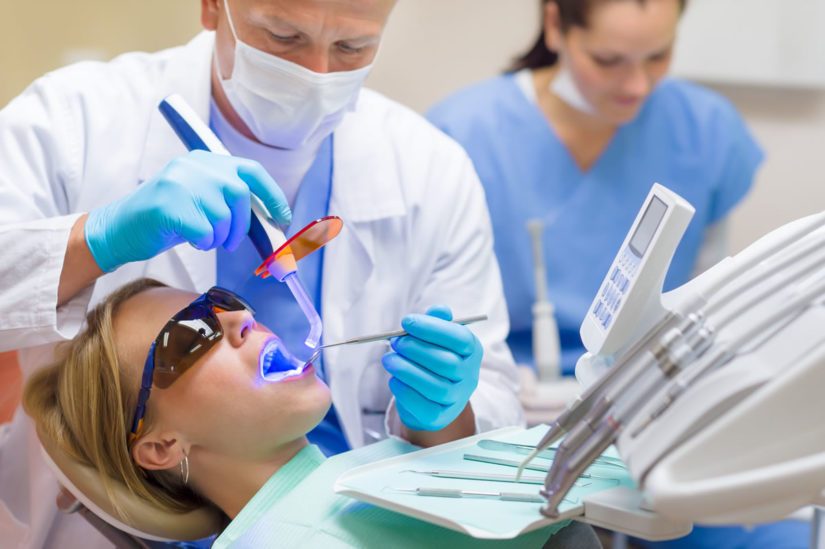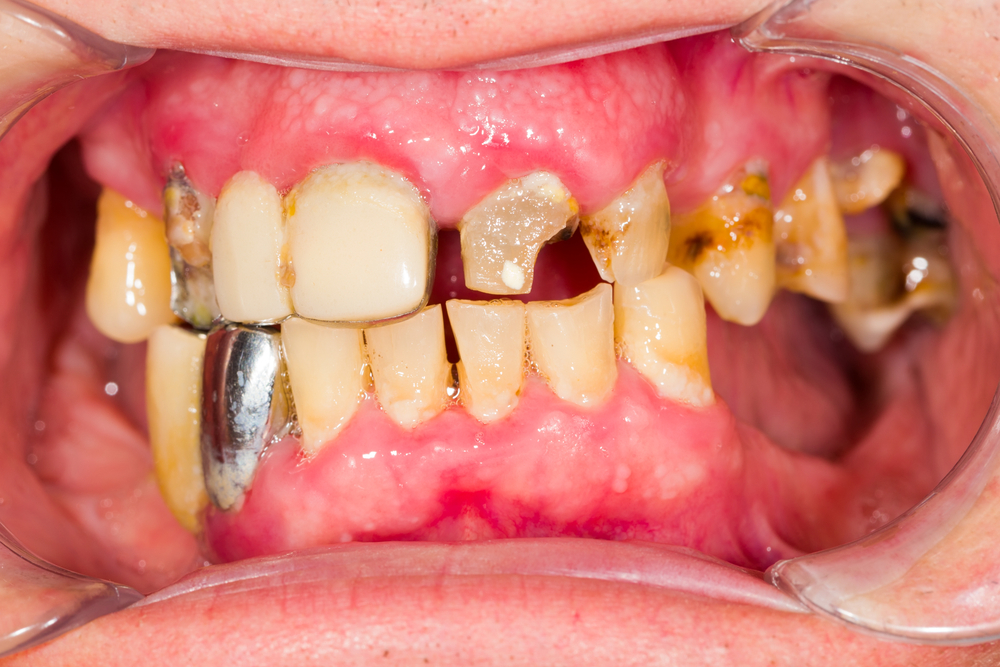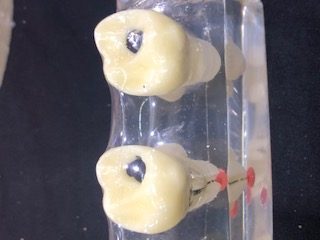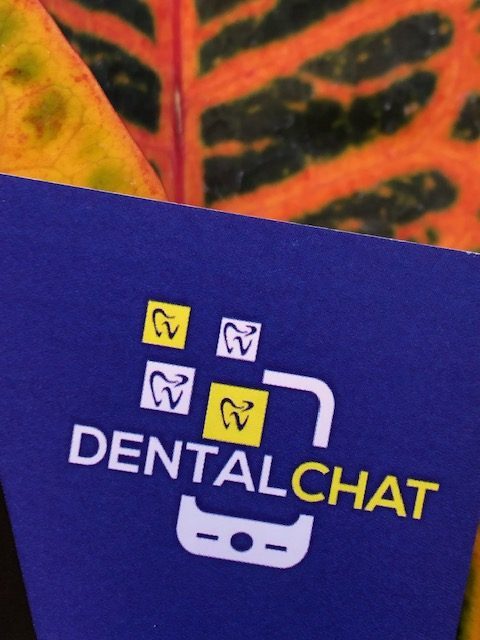
Dental Insurance: A Benefit Primer
If you have dental benefits, you’re fortunate to be amongst 60% of the population with outside financial support for dental care. Most plans are offered by employers as part of a benefits package, and can be helpful in making dentistry more affordable. But dental plans rarely cover everything and are designed to help share the cost of treatment with you. While it’s impossible to say exactly what your plan covers, or doesn’t, a few simple guidelines will help you ask the right questions. With hundreds of plans on the market, it’s also difficult to know the nuances of everyone. But the experts at your dental office will help you fill in as many details as possible.
Dental plans typically pay a high percentage of preventive services. These relatively low-cost services performed most commonly twice each year are simply the wisest dental commitment you can make. A small problem detected and managed early can cost 1/10 of the price tag of major repairs, even to salvage a single tooth. Insurance companies understand this, and often will gladly pay a little to save a lot.
If you need a filling for a broken or decayed tooth, insurance benefits may cover 40-80% of the cost. A larger restoration with porcelain may be covered at 40-50%, which is often a similar rate of coverage for other major services including root canals, dentures, and oral surgery. These general guidelines are just that…general. And sometimes insurance companies won’t indicate just how much they’re going to pay. So it’s wise to consider a discussion of payment prior to treatment as an estimate, based on the best information supplied by the insurance company. And remember, every plan has an annual maximum that hasn’t changed in 50 years. These dollars can significantly help you support your health, but they’re not designed to cover all the bases.
Dental benefits usually don’t cover purely cosmetic procedures such as whitening or veneers. But there may be other services related to a beautiful smile makeover that will be partially covered. If certain teeth in your smile have large restorations or old crowns, their replacement often meets the criteria for coverage. Furthermore, your dentist will incorporate artistry into every service they provide whether dental benefits are involved or not.
While your dentist works 100% for you, not the insurance company, your dentist’s team will always try to help you maximize your dental benefits. At DentalChat, we help patients find the right dental home where they feel comfortable. Let us know how we can help! We look forward to partnering with you to enhance your dental health!
Do You Need a New Denture?
Like everything we use, dentures wear out over time. But when you consider the wear and tear a denture gets working to chew your food, it’s remarkable they last as long as they do. Not many artificial materials exist in a wet, warm place with grinding forces grinding away day after day without wearing out! A properly made set of dentures can work for years before reaching their demise. Plus, they require little additional cost to maintain them over that period. But as it goes, the tough medical-grade plastic teeth wear down and can’t tear food as they used to. Or the base of the denture starts to crack, thin, and chip away. In some situations, the entire denture may break in half.
If you’re dealing with bad teeth, you may just be considering your first denture. If you’re not sure, a visit to the dentist can help you figure out your options. Whether you need a new denture or you can save your existing teeth, an exam is a good place to start. We welcome local dentists to do Partial Denture Blogging online and Dentures Chatting Online with us.
The cost of dentures worries patients when they decide it’s time for a new pair. Your dentures significantly influence your quality of life since they’re usually part of your daily experience. You’ve probably had a pair of cheap, poorly-fitted shoes. And in contrast, you’ve probably had a pair of comfortable shoes made from the best materials. While the prices were different, you ended up with what you paid for. We can all relate to that situation with many products we’ve purchased.
More Than A Product
But dentures are more than a product. In the bigger picture, they’re one part of a professional service that’s designed specifically for you. It’s important your dentist thoroughly examines your mouth before starting the steps to craft your new smile.
Sometimes unhealthy fungal infections thrive under old dentures, or gums are red and swollen. Unless these problems are examined and treated, new dentures just end up sitting on top of old problems. Your doctor checks for any signs of gum and jaw changes that need attention, a skill that requires the training of a dentist. Their background in anatomy helps them determine whether features of your mouth will affect the fit of new dentures.
Do you have Denture Question or Partial Dentures Questions with us at DentalChat.com – Ask Dentures Question here at DentalChat.
Since your dentist brings advanced training in cosmetic dentistry to the table, they apply that artistic eye to designing your new smile. For example, the color of denture teeth can be customized to your preference. And you may be surprised to learn that tooth size, shape, and alignment are part of the option package you choose. The cost of new dentures includes high-quality teeth duplicating nature, all ideally set into place for lip support and solid function. In most cases, the precisely placed teeth can be evaluated by you before the denture is processed. This gives you valuable input to the process that leads to a final denture.
New dentures may need slight adjustments since they’re made to fit closely onto your gums. Small pressure points aren’t unusual and Dr. Y is happy to fine-tune your new teeth once you’ve had a chance to use them. Short visits to make small adjustments right after you start wearing them are generally included in the cost of your overall treatment.
Nicely crafted dentures give you confidence, good function, and a smile you are pleased to display to the world. If you need help finding the best dentist to explore options for a new denture, we’re here to help you out. Try our chat function to connect with a dentist on our team!
If you don’t have a dentist or you’re dealing with more questions about what to expect after tooth extraction, you’re in the right place. DentalChat provides the best platform to connect with licensed U.S.-based dentists. You can ask questions online and even connect with a nearby office that can help you with your needs. Feel free to jump on and see how we can help now or in the future!

My Jaw Hurts: This Needs To End!
Your jaw and the muscles that make it work comprise one complex system. Jaw muscles produce powerful forces that crush and grind food to start the digestive process. When compared to other muscles in the body, these workhorses may generate the most force, ounce for ounce.
You can probably bite down and apply 175 pounds of brute force on your teeth! So, when you’re wondering “Why my jaw hurts,” this may be part of the explanation.
By each ear, the jaw joint (TMJ) joins the lower jaw to your skull with a cartilage pad and small ligaments. When you chew, yawn, or talk, these joints move in multiple directions. When everything functions as it should, pain isn’t part of the equation. TMJ Blog and TMD Blogging Online with us.
Sometimes the jaw joint experiences uncommon stress, and that’s when problems begin to develop. If you ever wake up in the morning with a sore jaw or headache, odds are your jaw hasn’t been resting as you have. Over 30 million people in the U.S. suffer from bruxism, or night-time teeth grinding. During the night, your brain can override normal bite force and generate 5 times more force than occurs during the day! This abnormal activity strains muscles from the neck to the top of the temples. It also compresses the jaw joints and can cause inflammation in the joints.
A Powerhouse System
To understand the strain on these muscles, clench your muscles.
Put your fingers on the muscle in front of the jaw and run them down to the lower jaw? Feel that bulge? Now clench and unclench as you rub the temples.
These long, skinny muscle fibers reach to the top of your head. When these major muscles, along with a bunch of small ones, undergo strain, then jaw pain begins. This discomfort radiates into many areas of the head, and there’s a big difference between the source of pain and the site of pain.
To top it off, the jaw joints can become pain centers of their own. A delicate cartilage disk cushions the lower jaw bone against the skull. Unusual forces, arthritic changes, trauma, or an uneven bite can cause the joints to become imbalanced and irritated.
Maybe you’ve had a foul knee, sore hip, or tender knuckles. The same problem can develop in the TMJ on the left, right, or both sides. Research even suggests that migraine sufferers can experience more severe TMD problems, and TMD may even intensify migraines. This double curse makes life especially miserable for chronic migraine patients.
So How Do I Stop Jaw Pain?
If you’re tormented by headaches or jaw pain, make sure you’ve had an evaluation with your dentist. A few easy tests and clinical clues provide insight to what’s making “my jaw hurt.”
While it’s a subject for another day, the possibility of Obstructive Sleep Apnea (OSA) shouldn’t be overlooked. A well-designed study in 2009 showed one in four OSA patients conjointly grind their teeth. OSA is a serious sleep disorder that’s responsible for a long list of health problems. The title of this article at NCBI.nlm – Prevalence of temporomandibular disorders in obstructive sleep apnea patients referred for oral appliance therapy.
In fact, 90% of people who die in their sleep have untreated OSA!
Bruxism could be the first clue that you’re stressing your body and a sleep study is in order. Jaw Pain Blogging online with us at DentalChat.
Sometimes it takes time to schedule a sleep study. A simple, inexpensive nightguard appliance can serve as a temporary measure to protect your jaw, teeth, and relieve some of the jaw pain or headaches. You may decide to ultimately invest in a custom nightguard, made just for you. There’s also a chance that treating a sleep disorder may take care of your pain while protecting your general health. Jaw Pain Question ask dentists or Dental Pain Chat at DentalChat. Post your Jaw Pain Question here.
Bottom Line to “Why My Jaw Hurts!”
Jaw pain or headaches seriously have an effect on your ability to enjoy life. In some cases, they may indicate a serious health disorder like sleep apnea. A game plan could include:
- Make an appointment with your dentist to discuss your concerns, and consider a sleep study with a certified sleep center.
- Order a temporary nightguard immediately to generate short-term relief. Here’s a simple one that will work for most people.
- If you’re having pain, try applying ice to the joint and muscles on the side of your face in front of the ears. Move the ice to your temples. If you find the pain temporarily drops by half or more, you’re probably dealing with TMD. If you still have pain, there are many other types of TMD that could be causing discomfort and you should follow-up with your dentist.
DentalChat provides a real-time connection between patients and licensed dentists. Need an answer to a question? Start chatting now. Need to find a dentist you’re comfortable with? Let us help you.

What To Expect After Tooth Extraction: A Patient Guide
If you’re wondering what to expect after tooth extraction, you’ve landed in the right place. It might not be at the top of your list, but sometimes the best solution to a dental problem involves removing your tooth. And many young people find themselves facing the removal of wisdom teeth. Regardless of the situation, knowing what to expect helps reduce your anxiety about what’s normal and when to be concerned.
Consider It Minor Surgery
Removing a tooth involves creating a small wound in your mouth. A tooth sits in the gum and bone, and we only see about 1/3 of the tooth structure above the gum line. The rest of it is anchored in the upper or lower jaw with thousands of tiny fibers that attach it to the bone.
After the tooth, bone, and gum are numbed with local anesthetic, your dentist applies steady pressure around the tooth to carefully detach it from the small attachment fibers. Pressure also slightly expands the bone and allows the tooth to loosen. In most cases, the tooth ends up out within a few minutes of precise, intentional movements.
In some cases, a tooth doesn’t easily move due to unusual roots that curve or extend deep into the jaw. Sometimes bone is less flexible than expected, or the tooth is difficult to engage because of deep cavities or broken pieces. If your dentist encounters this challenge, the gum is opened around the tooth, bone is carefully removed, and the pieces elevate out with the right technique. A few stitches are placed and healing begins.
What Comes Next?
At this point, you really start to wonder what to expect after your tooth extraction. Let’s look at a few things to keep in mind:
- Be patient with healing: The majority of your healing will take place over a period of two weeks, but the area will continue to change for several more weeks. Sometimes, small fragments of loose bone migrate their way to the surface and come out. But during the first 24 hours, it’s important to avoid vigorous exercise or heavy lifting
- Don’t skip eating: During the first 24 hours after a tooth extraction, you should go for soft foods and avoid hot beverages. Hard foods may aggravate the new wound, and hot beverages tend to soften the fragile clot. But after the first day or two, you can start to enjoy your normal eating habits.
- Rest wisely: A lot of restoration and repair goes on during sleep. If you’re not getting enough rest, healing tends to take longer.
- Stay in touch: If you have swelling that appears two or three days after your extraction, be sure to contact your dentist. If it’s accompanied by fever, difficulting breathing or swallowing, or bad-tasting discharge, make the call.
The Long Haul
Once you’ve started to heal, consider the longer term picture. Over time, the jawbone may begin to shrink and thin in areas where you’re missing teeth. You may also find that neighboring teeth tip into open spaces. Opposing teeth move down or up into edentulous areas. While this process may take years, you may end up with an unstable bite, difficulty chewing, and jaw pain issues.
Talk with your dentist about the best options for replacing your missing teeth or stabilizing your shifting teeth. Dental implants support natural, strong restorations that feel like natural teeth. A small bridge from one tooth to another may serve you, too. On the other hand, a removable appliance may be a quick and easy solution for replacing several missing teeth.
Moving On After Tooth Extraction
If you don’t have a dentist or you’re dealing with more questions about what to expect after tooth extraction, you’re in the right place. DentalChat provides the best platform to connect with licensed U.S.-based dentists. You can ask questions online and even connect with a nearby office that can help you with your needs. Feel free to jump on and see how we can help now or in the future!

Why Do I Have Bad Breath?
Have you ever had someone step back from you and immediately you think “Why do I have bad breath?” While our breath may be a source of embarrassment, it might be telling you something more, too. Understanding what’s behind bad breath is the first step toward creating a more pleasant breeze with your words.
What Creates That Odor?
When the wind blows across the earth around us, it brings us the scent of whatever it moves over. It could be pleasant wildflowers or a pile of horse manure, but odor particles bind to receptors in our noses and our brains process the message.
As our warm air rushes out of our lungs and across the linings of the throat and mouth, it does something similar. Any odors emitting from the tissue or teeth are picked up and carried out to nearby noses. Garlic carries a bit of a reputation thanks to powerful molecules with a distinct odor profile. “Coffee breath” also leaves its mark on a conversation.
Sometimes, bad breath is related to medical conditions. Diabetes, bronchitis, liver disease, or respiratory tract infections can create distinctive odors. A long list of prescription drugs often reduce saliva production and result in a dry mouth problem. If you haven’t had a physical recently with blood tests, it’s always a good idea to check these possibilities. If you’re taking an anti-depressant or high blood pressure medication and your mouth is dry, that could be contributing to the problem. But don’t stop taking your medication, just remember to let us know.
The Real Problem
While bad breath can come from systemic or medication sources, odds are it’s all about microscopic bacteria. Our mouths are loaded with bacteria and their by-products, including gases and toxins. Some bacteria emit a sulfur gas that just smells bad and easily mixes with moving air. But just because so many bacteria make the mouth their home, it doesn’t mean bad breath has to go along with the situation.
When you wake up in the in the morning, you’re going to throw out a little morning breath. During your sleep, your saliva output drops by 90%. This dry environment is perfect for bacterial overgrowth and they sulfur gases they produce.
Cavities, bleedings gums, excess tartar, or unwashed dentures involve bacteria-related problems, too. There’s a difference though. These problems need to be checked and treated by your dentist. So if you’re struggling with bad breath, make sure you’re up-to-date on your dental check-ups. Gum disease tends to have a distinct smell that can’t be brushed away. These problems are don’t always involve pain, and odor can be your only obvious warning signal.
Got it. But How Do I Stop Bad Breath?
You might be meticulous with your daily routine. Odd are that you brush and floss like a fiend. To top it off, you never miss the hour with your favorite hygienist every six months. But you can’t shake the frustration of “Why do I have bad breath?”
It’s easy to overlook the quiet, yet rowdy, member of the mouth: The tongue. If you inspect the surface of the tongue under a microscope, you see a thickly textured surface that helps us taste and feel. It’s a little like a carpet. Have you ever seen what comes out of a carpet after shampooing, even when it looks pretty tidy to the eye? That’s your tongue.
A slurry of food particles, bacteria, and dead cells gets embedded into this surface. A load of debris ends up stuck, and that can be a major factor of bad breath, even in conscientious patients. It then makes sense that learning to clean the tongue might make a big difference.
Using your regular toothbrush, brush your tongue as far back as you can without gagging. Scrub both sides and the top with vigor Include your favorite toothpaste to create a breath-freshening slurry to the task.
Getting Fresher
The best way to really freshen the tongue is to employ a tool designed to do it right. Tongue cleaners aren’t complicated, but they work. It’s a little bit like using a thatching rake on your backyard to drag out the dead stuff. A tongue cleaner could be just what the doctor ordered, and starting your day with this little trick might transform your world.
It’s not unusual to reach for a mouthwash if you’re trying to freshen your breath. Unfortunately, you may compound the problem. Most rinses contain alcohol and dry out the mouth, which then lowers the pH. Rinses are analgous to perfume for the mouth. Perfume covers up body odor, but it doesn’t fix the core problem. A mouth rinse might cover up the offensive odor for awhile, but it doesn’t solve the problem.
Alcohol-free rinses work differently and offer a valid way to experiment with a swish and spit routine. These products cancel out sulfur gas, create a neutral pH, and wipe out 99% of the odor-causing bacteria on contact. Closys products enjoy approval by the American Dental Association, and boast a solid record of helping people asking “Why do I have bad breath?”
Be very careful about covering up bad breath with mints or other candies and methol cough drops. Most are full of sugar and increase the acidity of the mouth. You could go from no cavities to a whole bunch of them with this destructive habit. A good alternative includes xylitol-sweetened candies, and you’ll find good options online or in your local pharmacy. Xylitol is a natural sweetener that actually disturbs your bad mouth bacteria and prevents them from thriving. Use it.
The Bottom Line
At this point, you should have a few more ideas about “Why do I have bad breath?” To put it succinctly, here’s the take-home message:
- Check out your general health with your physician. Be sure to discuss side-effects of any medications you’re taking.
- Don’t skip regular dental visits and stick with treatment recommendations. Follow-through pays.
- Establish the best home oral care habits including brushing and flossing. Consider an electric toothbrush or water flosser.
- Add a tongue-scraper to your morning routine.
- Check out the innovative fresh-breath products from Closys.
At DentalChat, we bring patients and dentists together online for real conversations. Our real-time platform helps you find the answers and resources you need. Looking for a dentist in your area? Start chatting now and get the help you need.

Bad Teeth and The Way Forward
Sometimes good teeth turn into bad teeth. It’s usually a frustrating, uncomfortable journey with a lot of treatment and expense along the way. But we need teeth for a few obvious reasons. Besides their important functional role, they also enhance a person’s physical appearance. So, one way or another, we need to maintain or correct teeth in decline.
Keeping teeth healthy takes a dose of care and diligence. If you’re careless and don’t pay much attention, it’s like not doing maintenance on your car: Eventually it’s going to catch up with you. Next thing you know, you’re headed down a road you never meant to end up on.
Millions of people find themselves with numerous cavities or gum disease, both leading causes of tooth loss. Sometimes there’s one reason, sometimes there are many. Usually, a combination of factors play into the affliction.
Why Do Teeth Go Bad?
Most people don’t realize it, but cavities are an infection. First, young babies often end up with a mix of bacteria from their mothers that reside on their teeth. Like all living organisms, these bacteria need energy to live. Since they love sugar and other carbohydrates, they’re happy when you drink a soda or chew dried fruit.
These oral bacteria create energy from sugars and produce acid as a waste product. You can imagine what happens when acid gets dumped on your teeth. Holes start to form in the weakened surface, and a cavity develops. Soon, you have bacteria invading the inside of the tooth and headed to the nerve. Next, an abscess develops and the tooth needs to be removed if too much damage has occurred.
A similar process occurs in gum disease. Gum-loving bacteria produce toxins that cause inflammation and bone destruction. Teeth go bad because they’ve lost their supporting bone around the base of them.
Bad Teeth Signs and Symptoms
If you experience symptoms of tooth decay, you need to visit your dentist as soon as possible. Waiting works well if you’re looking for a bus, but it’s not a great idea when you have mouth pain. The earlier that cavities are identified, the easier their treatment. If you experience the following symptoms, you should make firm plans to visit a dentist:
- Tooth pain including sensitivity, throbbing, or soreness
- Any kind of pit, hole, or sharp edge on a tooth
- Pus or drainage around a tooth
How Do You Handle Bad Teeth?
There isn’t a “one size fits all” solution for teeth that go into decline. In many cases, repairs can be made to the existing teeth. Or gum disease can be controlled with therapy and new homecare habits. When teeth cross the proverbial line, they may need to be removed. In this scenario, dentures become one possible solution to the missing teeth issue. However, dentures have a few drawbacks to consider:
- Dentures are by nature removable appliances, and they may move in the mouth and cause sore spots on the gums.
- Dentures do not provide the same eating experience that natural teeth do. Hence, there is a chance that they may lead to poor eating habits, weight loss, and nutritional deficiencies.
- Sometimes, dentures are not fitted properly and have a poor bite. This may also lead to changes in jaw joint thus creating jaw, neck pain, and headache.
Fortunately, dental implants offer up a wide array of options if bad teeth end up needing removal. These strong, titanium cylinders sit in the jawbone and mimic the root of a tooth. This powerful support system can be used to hold a denture firmly in place. On the other hand, they can replace a single tooth or several missing teeth.
Cost may be a consideration when it comes to dental implants. However, this depends on the number of dental implants being placed and other associated procedures which can be discussed with the dental office or the dentist.
We Can Help
Many people wonder how they can find the best dental info and best dentists articles online. The reason many people are looking for local dental information online is fairly simple. For one, they want to know what is going on in their mouth. For instance, if your dentist tells you that you need a root canal on your back molar and need to see an endodontist, you want to know more. You may be curious to find out what is a root canal and who are local endodontists? What does an endodontist do?
At Dental Chat, we help cut through the confusion and provide accurate, valuable blogs on every topic. Here is a local dentist link to Endodontics Dental Chat about Local Endodontists. The best part is that we network with local dental blogs and local dentist bloggers who share their local dentist articles with us. We are looking to list the best local dental offices and best dentists for patients that need to have a root canal or another dental service. We are always looking to expand and grow and offer the Best Local Dental

What’s Happening: Can A Toothache Cause Ear Pain?
Can a toothache cause ear pain or headache? People often ask this question of their local dentist or online. It just seems that a toothache comes along at the worst time. You’re ready to go on a trip or worse yet, you’re on a trip and a toothache starts. Toothache pain can ruin a vacation and will definitely hijack a good night’s sleep. The reason is simple. The teeth in the mouth have major nerves that connect the mouth to various parts of the face, head, and brain. When the nerves surrounding a tooth gets irritated, the result is pain. Toothaches are also notorious for causing ear pain. So, can a toothache cause ear pain and why does this happen?
Where Did This Come From?
There are many factors that cause toothaches, ranging from tooth decay and gum diseases to just brushing or flossing abnormally. Here are a few major factors that cause toothaches:
• Tooth Decay
The most common factor that causes toothache is… wait for it… Tooth decay! It’s responsible for most toothache cases today. It’s not usually a pleasant topic to discuss with people but it’s just the plain truth because it’s a threat to all of us. If you have pain in your tooth and its surrounding area, it could be a sign of early tooth decay. Once the internal layer of the tooth is compromised, the pain becomes worse and may lead to an abscess. You shouldn’t for pain to see your dentist for an exam to detect cavities.
• Tooth Cracks
Cracked or chipped teeth occur in different ways. Normal chewing on hard foods, trauma, and grinding, people can end up with tooth fractures. In most cases, when a tooth cracks, only the surface of the tooth is fractured. When left untreated, the fracture can progress till it reaches the center of the tooth. Toothache in a cracked or chipped tooth means the center of the tooth has been affected and the nerves in that tooth are compromised. You really shouldn’t let the condition of a cracked tooth deteriorate before you consult your dentist.
• Gum Infections
With symptoms including red, bleeding gums, toothaches and a general dull painful sensation in the mouth, gum infections are really hard to miss. Gum infections should not be ignored, as they can lead to more dental complications that may require surgical procedures. Consult a dentist immediately.
• Teeth Grinding or Bruxism
Grinding your teeth and clenching your jaw puts you at risk of getting a toothache and ear pain as well as pain in other related muscles. This is because teeth grinding can cause pain in the jaw bones, headaches, and even cracked teeth. Most people grind their teeth intentionally when tired or stressed. Others do it unconsciously in their sleep, leading to painful mornings and toothaches. Teeth grinding can be treated by wearing a mouthguard while sleeping to prevent such occurrences.
• Abnormal Brushing or Flossing
Our teeth are sensitive to pressure, and if too much pressure is used when brushing or flossing, it can lead to toothaches in the mouth. Using too much force when brushing is also harmful to the gums. it can cause irritation and injuries to the gums and lead to unstable teeth, thereby causing more pain. To avoid this mistake, it is best to consult a dentist about the proper way to brush. Also, avoid hard toothbrushes.
Other factors that can cause toothaches include sensitive teeth, tooth abscess and sinus infections.
What Can I Do To Prevent Toothaches?
There are many home remedies you can use to prevent toothache and gum infections, and they include:
• Brush regularly. The best way to prevent toothaches or dental complications is to brush your teeth regularly. Brushing twice daily with a soft-bristle toothbrush can help you maintain good oral health and keep your mouth free of infection-causing germs.
• Drink fluoridated water. Since tooth decay is a major factor that causes toothaches, it’s a great idea to drink fluoridated water. Fluoride is good for the teeth and can help you prevent tooth decay.
• Avoid smoking. Smoking has a way of compromising the strength and health of your teeth. It’s a good line of action to stay away from anything that can put you at risk of a gum infection or worse.
• Protect your teeth at play: To avoid teeth cracks and fractures, always wear a mouthguard and appropriate protection when playing aggressive, contact sports. Using Dental protection can save you a lot of pain and unnecessary expenditure in case of an accident.
• Eat a balanced diet. Eating a balanced diet rich in protein, fruits and vegetables. Consumption of sugar-rich foods and drinks should be minimized as they can cause cavities and compromise the strength of your teeth and gums.
• Keep regular appointments with your dentist. If you’re wondering, “Can a toothache cause ear pain,” it’s best to see a dentist to check out the possibility. Your dentist is in a better position to assess the condition of your teeth and general oral health. If he/she discovers an issue, they can arrange a dental cleaning or appropriate procedure to nip the issue in the bud.
Remember, once you start feeling toothache and associated pain, heed the warning and consult your dentist. You may want to ask them, “Can a toothache cause ear pain, face pain, or headache?” There are many recommended procedures to help you relieve the pain and make you feel better.
We Can Help
Many people wonder how they can find the best dental info and best dentists articles online. The reason many people are looking for local dental information online is fairly simple. For one, they want to know what is going on in their mouth. For instance, if your dentist tells you that you need a root canal on your back molar and need to see an endodontist, you want to know more. You may be curious to find out what is a root canal and who are local endodontists? What does an endodontist do?
At Dental Chat, we help cut through the confusion and provide accurate, valuable blogs on every topic. Here is a local dentist link to Endodontics Dental Chat about Local Endodontists. The best part is that we network with local dental blogs and local dentist bloggers who share their local dentist articles with us. We are looking to list the best local dental offices and best dentists for patients that need to have a root canal or another dental service. We are always looking to expand and grow and offer the Best Local Dental Platform at DentalChat.

Networking online with dental companies, best dental professionals and local dentists
More and more businesses and companies are networking – and partnering online. We at DentalChat are looking to be networking online with dental companies, best dental professionals and local dentists.
How is Dental Chat networking with local dentists? DentalChat.com has one of the top dental platforms, that connects dentists to new patients and also, helps in providing dental information to people interested in dentistry. DentalChat was founded by a dentist over a decade ago, to help people with their dental care. Now, we have a great team of dedicated professionals that are expanding and improving that vision.
Networking online with us at DentalChat: If you are a dental company, ad media company, web tech company, social media blogger, dental professional or local dentist – now, is a great time to be networking online with us at DentalChat. Dental Chat online with great local dentists and dental practices. We are at DentalChat using smart technology and local dental professionals, to provide our users with great insight and knowledge about various Local Dentist Questions Online people have.
What dental subjects are covered on DentalChat? We cover most dental subjects and dental topics on DentalChat.com. We get asked many local dental questions about toothache or are asked many local dental questions about dental implants. Want more local dental implant information – here is a link to a local dental implants information blog on DentalChat.com. We also get asked many Local Emergency Dentist Questions online with us.
Excellent time and opportunity for local dental companies and local dentists to network – and to partner online with us @ DentalChat. We have many Local Dentist Blog articles and dentists can write local dental blogs online for us as well.

Best Local Dentist Directory Listings Online
Best Local Dentist Directory Listings Online
There are always people looking for great new dentists or an excellent Local Dentist to go to. Finding the best local dental practice can be challenging for many people. Whether it is because they have moved or they just have not wanted to go to a local dentist for a couple of years. We at Dental Chat are looking to list the best dental practices. Local Dentist Chatting Online, Best Local Dentist Blogging and Local Dental Practice Directory Listings Online with us at DentalChat.com.
DentalChat has been a leading dental platform looking to help people with their local dental care. We welcome networking with local dental companies.
To sign up online with us is very simple for local dentists. Best Local Dentist Directory Listings Online and Best Dentists Directory Listing Online with us @ DentalChat. Great time for dentists to be signing us at DentalChat. Here is the link for dental offices and dentists to sign up.
https://dentalchat.com/dentist-signup
Are you a person who has a local dentist question about wisdom tooth or a local dental question about dental implants? Here is the link to the Dental Question Chat Post page to have your local dentists questions answered.
Great time for local dentist bloggers to network with us.
Best dental machines of 2019
We are discussing various dental subjects and dental care topics on DentalChat. We welcome local dentists to share their dental knowledge with us, as many of our Dental Chat users are always looking for great dental information. In this local dentist blog, we will be discussing the Best Dental Machines of 2019 – more specifically, looking to have the list of Best Dental Machines by end of 2019.
We are at DentalChat.com looking at the listing the Best Dental Machines for dentists in 2019. If you have a dental product or dental machine that you feel should be part of this list – email us at service@dentalchat.com.
Dental imaging machine blog:
Right now there are some exciting new pan 3d x-ray machines and ceph x-ray machines that have come to the market, with some exciting new technologies. The software improvement of many of these dental imaging machines is constantly getting better. We like dentists to share their thoughts as to the best dental imaging machines in the market today.
We at DentalChat.com will be attending various dental events and dental conventions – to view and report back to our readers. Many patients like their dentist to have the best dental machines on the market.
